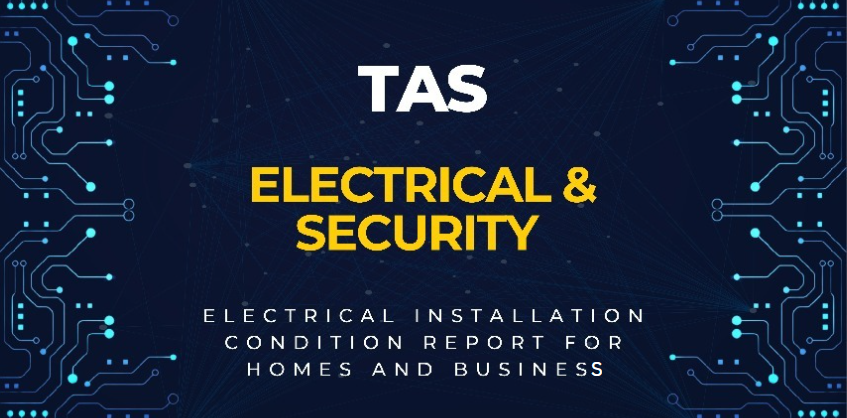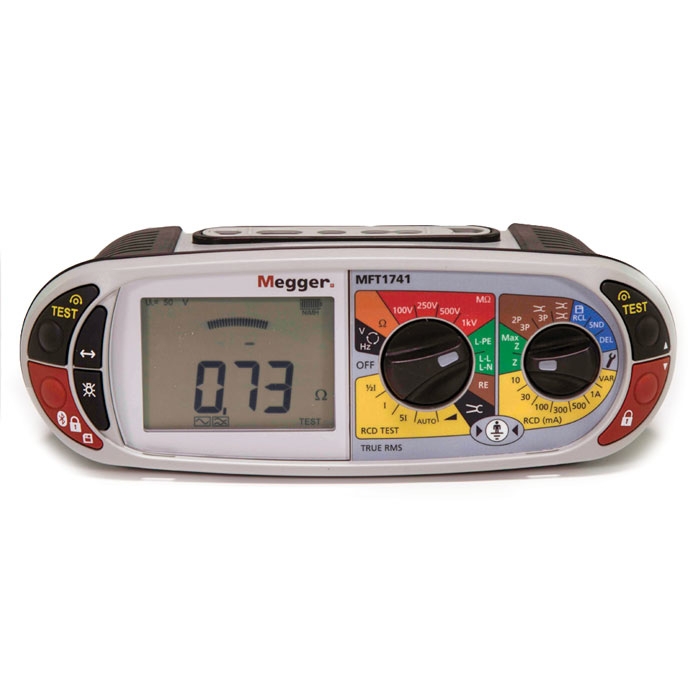| 07830655771 |  |
 |
 |
| Electricians |
Fire Alarm Systems | CCTV Company |
Intruder Alarms |
Access Control |
Emergency Lighting | Nurse Call Systems | PAT Testing |
Security Lighting |
EICR Reports |
Fire Risk Assessments |
 |
TAS Electrical, proudly NICEIC registered for over a decade, offers expert electrical testing services for both homes and businesses. Our long-standing certification ensures compliance with the highest industry standards, providing peace of mind for property owners. We specialize in helping landlords and business owners adhere to legal regulations, such as the Electrical Safety Standards in the Private Rented Sector (England) Regulations 2020, ensuring all electrical installations are safe and up-to-date. Trust TAS Electrical to keep your properties compliant and safe with our reliable and thorough testing services. |
 |
At TAS Electrical and Security, we conduct Electrical Installation Condition Reports (EICRs) with minimal disruption to your daily operations. Our skilled technicians work efficiently and professionally to inspect and test your electrical systems, ensuring compliance with safety standards. We understand the importance of time in both residential and commercial settings, so we prioritize completing our work promptly without compromising quality. Trust us to deliver thorough and reliable EICRs, keeping your property safe and up-to-date with minimal inconvenience. |
|
What is an Electrical Installation Condition Report (EICR)? An EICR is a detailed assessment of the electrical installations within a property. It is conducted by a qualified electrician and aims to identify any issues that may pose a risk to safety. The report covers the condition of electrical wiring, accessories, and fixtures, and it assesses whether the installations comply with current British Standards (BS 7671). |
Electrical installation Condition Reports. Electrical Testing And Inspections EICR Reports and Landloards Electrical Saftey Reports |
|
2. Legal Compliance: In England, landlords are legally required to ensure the electrical safety of their properties. The Electrical Safety Standards in the Private Rented Sector (England) Regulations 2020 mandate that landlords have the electrical installations in their properties inspected and tested at least every five years. 3. Avoiding Penalties: Failure to comply with the legal requirements for electrical safety can result in substantial fines and other penalties. An up-to-date EICR helps landlords avoid these legal repercussions. 4. Insurance Requirements: Many insurance policies for properties require regular electrical safety inspections. An EICR serves as proof that the property has been inspected and deemed safe, which is crucial in the event of an insurance claim. 5. Protecting Property Value: Regular electrical inspections help maintain the property’s value by ensuring that all electrical installations are in good condition and comply with current standards. 6. Tenant Satisfaction: For landlords, providing a safe living environment is essential for tenant satisfaction and retention. An EICR assures tenants that their safety is a priority. |
|
2. Building Regulations: These regulations set standards for electrical installations in buildings, ensuring they are safe and energy-efficient. 3. Health and Safety at Work Act 1974: For business owners, this act mandates that employers ensure the health and safety of their employees, which includes maintaining safe electrical systems.
|
|
1. Regular Inspections: Schedule EICRs at least every five years, or more frequently if recommended by a qualified electrician. 2. Address Issues Promptly: If an EICR identifies any issues, ensure they are addressed immediately to prevent minor problems from becoming major hazards. 3. Qualified Professionals: Always hire certified electricians to conduct EICRs and any necessary repairs. 4. Keep Records: Maintain detailed records of all EICRs, repairs, and maintenance. This documentation is crucial for legal compliance and insurance purposes. 5. Educate Occupants: Inform tenants and employees about basic electrical safety practices, such as not overloading sockets and reporting any electrical issues promptly. 6. Upgrade Outdated Systems: Ensure older properties are updated to meet current electrical safety standards. This may involve replacing old wiring and outdated fuse boxes. 7. Use Safe Appliances: Ensure that all electrical appliances provided in rental properties or used in businesses are safe and regularly tested. |
Electrical installation Condition Reports. EICR Reports and Landloards Electrical Installation Condition And Saftey Reports |
|
What is an EICR? The EICR Procedure: Step-by-Step Appointment Scheduling: The first step is to schedule an appointment with a qualified and registered electrician. Electricians use a variety of tools and equipment during an EICR, including: Insulation Resistance Tester: Measures the insulation resistance of cables and wiring. Continuity Testing: Ensures that all conductors are continuous and that connections are secure. This test is crucial for verifying that the earthing and bonding are effective. Process: The electrician will use a continuity tester to check each circuit. This involves measuring resistance between conductors and ensuring values fall within acceptable ranges. Process: The insulation resistance tester applies a high voltage to the circuit and measures the resistance. Insulation should exhibit high resistance, typically in the range of megaohms (MΩ). Process: The electrician uses a multimeter or socket tester to verify polarity at outlets and switches. Process: The earth fault loop impedance tester measures the total impedance of the earth fault loop and ensures it meets the requirements of BS 7671. Process: The RCD tester applies a fault current to the RCD and measures the time it takes to trip. The results are compared to the standards to ensure compliance. Process: The electrician manually operates switches and circuit breakers, checking for proper functionality and responsiveness. Analysis of Findings: The electrician will analyze the results of the tests and inspections to determine the condition of the electrical installations. Documentation: The electrician will compile the findings into a formal EICR document, detailing any defects, observations, and recommendations for remedial actions. Remedial Work: If the EICR identifies any C1 or C2 issues, these must be addressed immediately to ensure safety. A follow-up inspection may be required to confirm that remedial actions have been completed satisfactorily. Regular EICRs not only help prevent accidents and protect property but also ensure legal compliance and provide peace of mind for all occupants. Prioritize electrical safety by scheduling your EICR today and safeguard your property for the future. |
Electrical installation Condition Reports. Electrical Testing And Inspections. (EICR) Reports and Landloards Electrical Saftey Certificates |
|
Investing in regular EICRs is a small price to pay for the peace of mind that comes from knowing that your property is safe and compliant with all necessary regulations. Make electrical safety a priority today and safeguard your future. |
|
TAS Electrical and Security specializes in Electrical Installation Condition Reports, ensuring your property meets safety standards. Our EICR Reports are thorough and reliable, providing peace of mind for property owners. We also offer comprehensive Landlords Electrical Safety Reports, keeping rental properties compliant with regulations.Electrical Installation Condition Report |
|
The primary purpose of an EICR is to ensure that the electrical installation is safe for continued use and complies with the current BS 7671 standards (the UK wiring regulations). It is particularly important for landlords, as they are legally required to ensure the safety of electrical installations in rental properties. |
|
Common Faults Found in an EICR C1 (Danger Present): This indicates an immediate risk of injury or fire. For example, exposed live wires pose a direct threat and require urgent repair to make the installation safe. C2 (Potential Danger): This denotes a potentially hazardous situation that isn't immediately dangerous but could become serious over time. An example is inadequate earthing, which needs prompt attention to prevent future risks. C3 (Improvement Recommended): This classification suggests areas that don't pose immediate or potential danger but could benefit from improvement to enhance safety and compliance. An example might be outdated wiring that still functions but doesn't meet modern standards. Conclusion |
Electrical Installation Condition Report. EICR Reports and Landloards Electrical Saftey Reports |
Social Media |
 |
| 07830655771 |  |
Electrical Installation Condition Report. EICR Reports and Landloards Electrical Saftey Reports |